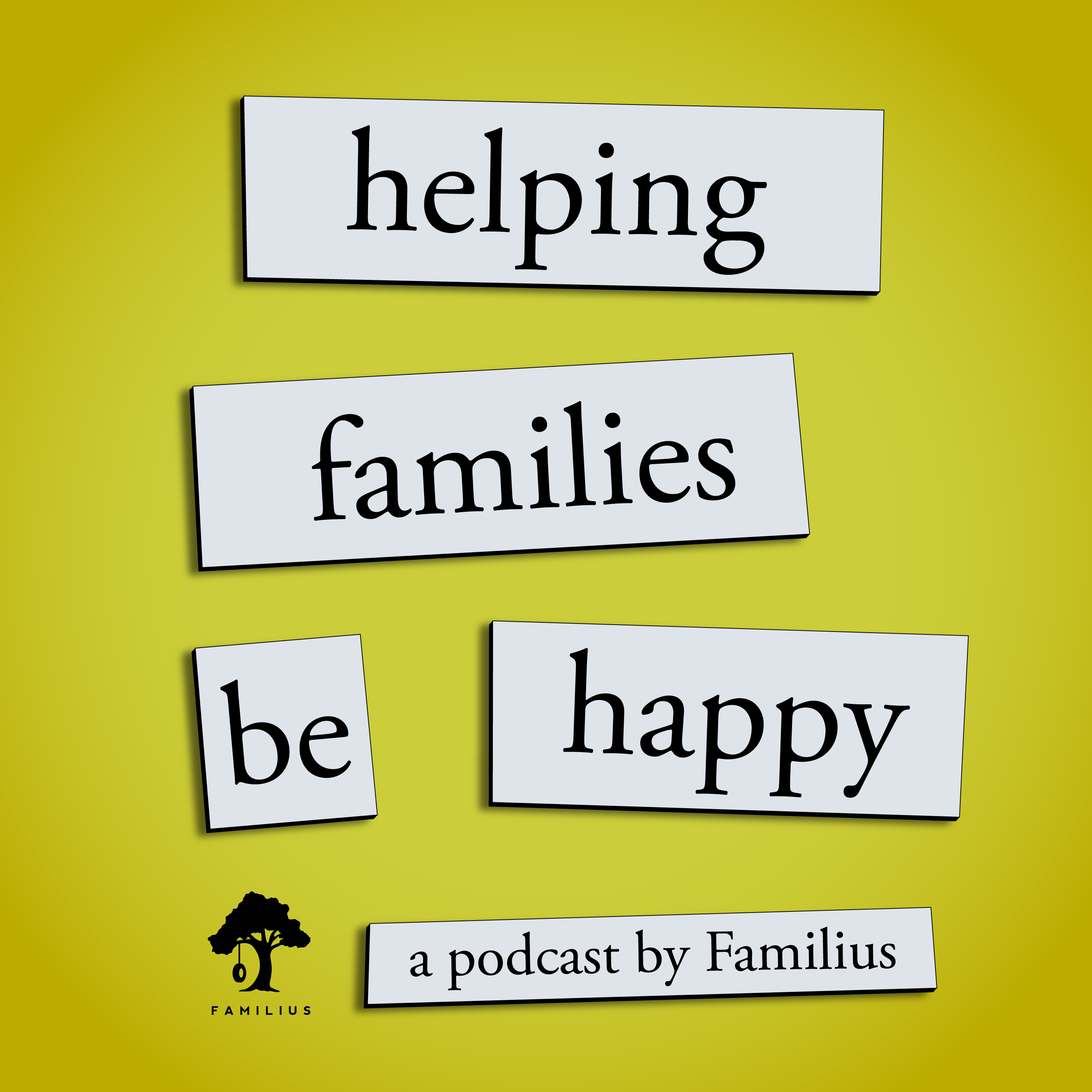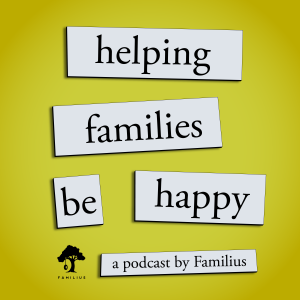
14.3K
Downloads
213
Episodes
With help from guest authors, experts, and community and business leaders, the Familius Helping Families Be Happy podcast explores topics and issues that connect families to the nine habits of a happy family: love, play, learn, work, talk, heal, read, eat, and laugh together.
Episodes

Wednesday Sep 04, 2024
Breaking the Silence: Gen Z and Mental Health with John Schlimm
Wednesday Sep 04, 2024
Wednesday Sep 04, 2024
In this episode, host Adina Oberman welcomes John Schlimm, a Harvard-trained educator, artist advocate, and author, to discuss the complexities of Generation Z, focusing particularly on their mental health challenges and societal impacts. Exploring John's journey into becoming an advocate for Gen Z's mental health, the episode delves into the reasons behind the high suicide rates in this generation, the role of social media, and how Gen Z is reshaping the conversation around mental health. The discussion also touches on the importance of communication across generations and offers insights into tackling mental health issues head-on.
Episode Highlights:
00:00:09: Adina Oberman introduces the podcast and today's guest, John Schlimm, highlighting his work on unveiling the multifaceted identity of Generation Z, beyond stereotypes and media profiling. She underscores John’s innovative collaborations in art and mental health initiatives, aiming to foster a deeper understanding of Gen Z’s unique challenges and strengths.
00:01:21: John shares his initial engagement with Generation Z, noting the generational shift he experienced while teaching. His story reveals an unexpected journey into the heart of Gen Z’s world, highlighting their openness and bravery in discussing mental health issues, which markedly sets them apart from previous generations.
00:02:35: A dialogue on the importance of educators in understanding and connecting with Gen Z unfolds. John emphasizes the value of sitting down and engaging directly with young people, urging fellow educators to listen and learn from their students' experiences, especially regarding mental health.
00:03:39: John dives deeper into the mental health crisis facing Gen Z, discussing its complexity and the lack of a single, definitive reason behind the high suicide rates. He challenges common assumptions and sheds light on the disparity between Gen Z's willingness to discuss mental health and society’s readiness to listen and support them.
00:06:10: Unpacking the paradox of Gen Z’s high suicide rates alongside their forwardness in discussing mental health, John suggests that societal and individual factors play significant roles. He stresses the need for genuine conversation and listening to understand the depths of Gen Z’s experiences without simplifying their struggles.
00:09:12: Addressing stereotypes and misunderstandings about Gen Z, John advocates for a shift in perspective among older adults. Reflecting on how stigmas and preconceptions affect both the listener and the sharer, he highlights the transformative potential of open, non-judgmental communication in bridging generational gaps.
00:10:44: An unexpected moment with surprise fireworks becomes a metaphor for the unpredictability and vibrancy of working with Gen Z. John connects this delightful interruption to the essence of embracing unexpected insights and joyful interactions that can emerge from genuine engagement with young people.
00:12:39: In discussing broader mental health implications, John suggests that lessons from engaging with Gen Z can be applicable across all ages, including surprising demographics such as senior citizens. He emphasizes the universal need for more open conversations about mental health and suicide prevention.
00:21:52: As the episode wraps up, Adina thanks John for his insights and shares with the audience where to find more information about his work. The conversation concludes on a note of hope and encouragement for continuing to build bridges of understanding and support across generations.
Key Takeaways:
- Generation Z is unprecedentedly open about mental health issues, setting a new standard for discussions around depression, anxiety, and suicide. Their readiness to share presents an opportunity for societal advancement in mental health awareness.
Show Notes By Barevalue
- The high suicide rates among Gen Z underscore a complex interplay of individual, societal, and systemic factors, with no single cause. It calls for a nuanced, empathetic approach to mental health discussions and support.
- Engaging directly and respectfully with Gen Z (and all individuals facing mental health challenges) can lead to deeper understanding and solutions. Open dialogue, free from judgment and preconceptions, is crucial.
- The episode emphasizes the importance of listening and learning from younger generations, highlighting that mental health is a universal issue that transcends age and other demographics.
Tweetable Quotes:
- "By merely saying words like anxiety and depression, Generation Z has made a historical leap in mental health awareness." - John Schlimm
- "Sitting down and talking to young people will teach you more than any research study or book ever could." - John Schlimm
- "We're not pointing fingers; let's just have a conversation." - John Schlimm
Show Notes By Barevalue

No comments yet. Be the first to say something!